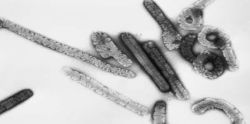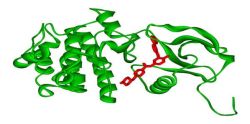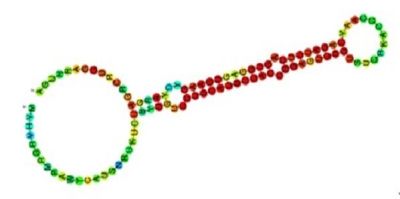Researchers at the Cincinnati Children's Hospital Medical Center have successfully transplanted organoids of functioning human intestinal tissue grown from pluripotent stem cells in a lab dish into mice. This development could create an unprecedented model that would help clinicians better study diseases of the intestine, and with more research could lead to the bioengineering of human intestinal tissue to treat gastrointestinal diseases.
The results from the study were reported in Nature Medicine. According to Michael Helmrath, MD, MS, lead investigator and surgical director of the Intestinal Rehabilitation Program at Cincinnati Children's, "These studies support the concept that patient-specific cells can be used to grow intestine. This provides a new way to study the many diseases and conditions that can cause intestinal failure, from genetic disorders appearing at birth to conditions that strike later in life, such as cancer and Crohn's disease. These studies also advance the longer-term goal of growing tissues that can replace damaged human intestine."
The research team used induced pluripotent stem cells (iPSCs) to generate the intestinal organoids. They converted adult cells drawn from skin and blood samples into blank iPSCs. They then placed the stem cells into a specific molecular cocktail to form intestinal organoids. The organoids were then grafted into the capsule of the kidney of a mouse. This provided the blood supply that allowed these cells to grow into fully mature human intestinal tissue.
Once attached, the researchers discovered that the cells grew and multiplied on their own. The results were the same for each mouse in the study, as they all produced significant amounts of functional human intestine.
These findings could help people born with genetic defects that affect their digestive systems. It could also provide possible solutions for those who have lost their intestinal function because of cancer and those suffering from Crohn's disease and related inflammatory bowel diseases.
A very big advantage of using tissue generated from iPSCs is that the treatment process would involve the patient's own tissue and would eliminate the risk and expense of life-long medications. While this research is still in its initial stages and it may take years of further research to translate lab-grown tissue replacement into medical practice, the discovery could possibly accelerate drug development. This is because lab-grown organoids can replace the animal testing stage and could allow early drug research to occur directly upon human tissue. This could potentially shave years off the development process.
The study was led by James Wells, PhD, and Noah Shroyer, PhD. Wells is a scientist in the divisions of Developmental Biology and Endocrinology at Cincinnati Children's and is director of the Pluripotent Stem Cell Center. Shroyer is a scientist in the divisions of Gastroenterology, Hepatology & Nutrition and Developmental Biology.
Source: Science Daily
Image Credit: Wikimedia Commons
























